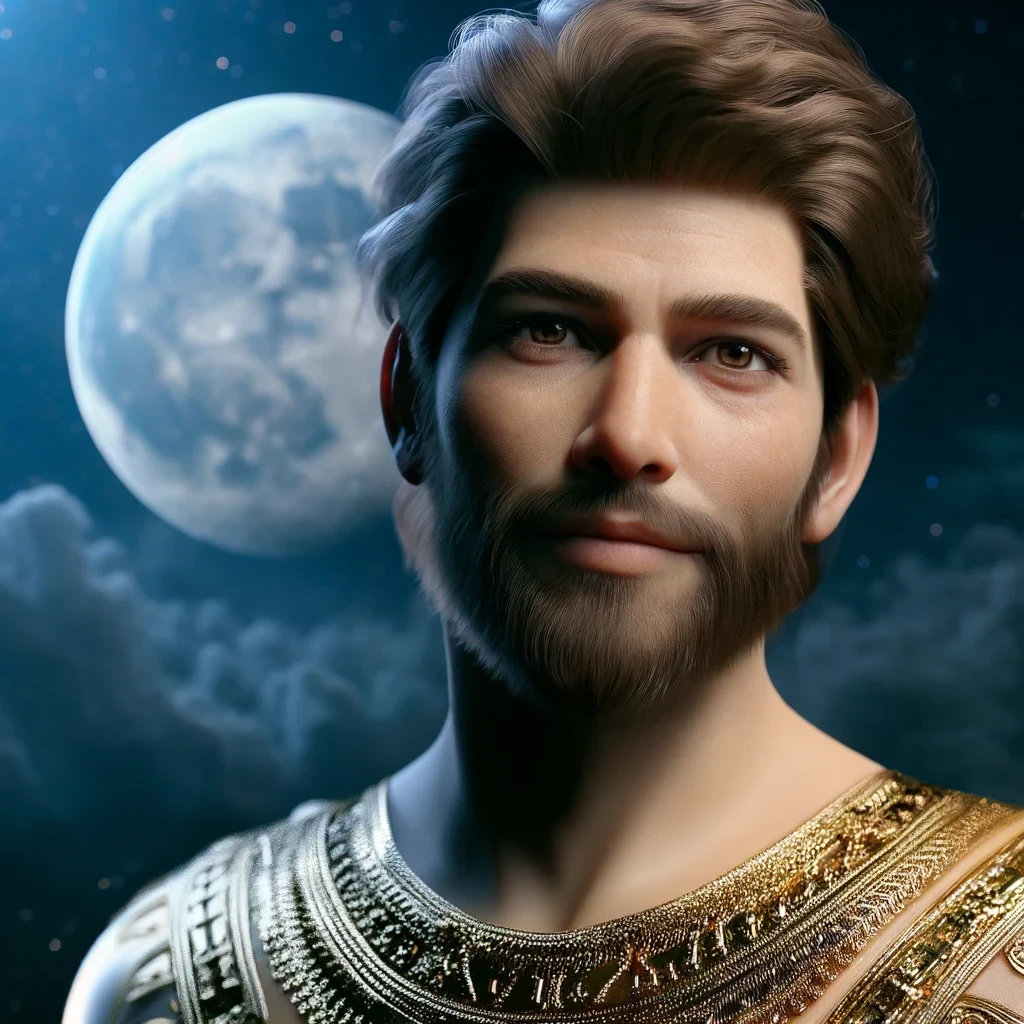 Nanna's Appearance
Nanna's Appearance
Nanna is often depicted as a bearded man with the crescent moon hovering above his head. As the father of Inanna, he is depicted here 20 years older than her, i.e. at the age of 45. Nanna often wears sumptuous robes that emphasize his role as one of the main gods.
 Nanna's Personality
Nanna's Personality
The moon god Nanna is romantically inclined and tends to stay in the background. He gives the moon its magical properties, which allow it to influence the agricultural cycles and which, if observed, are said to bring rich harvests and prosperity.
 Nanna's Duties as a God
Nanna's Duties as a God
Nanna, the Sumerian moon god, travels across the sky with the moon every night. He illuminates the night and brings light and protection. He preserves the cosmic order and symbolizes constancy. He gives the moon its magical properties and thus acquires an important influence on natural cycles, including agriculture. Nanna is seen as a promoter of growth and harvest, supporting the fertility of the earth. His presence and influence are seen as beneficent and he is asked for blessings for abundant harvests and prosperity.
 The Career of Nanna
The Career of Nanna
Nanna is the god who gives the moon its magical properties; he is the god of the moon, but not the moon itself. This can be seen from the fact that the moon is already mentioned as a celestial body in the myth Enki and Ninhursag, at a time when Nanna had not yet been born.
As described in the myth Enlil and Ninlil, Nanna is the son of Enlil and Ninlil. He was born at a time when the cities were not yet settlements and the construction of canals for irrigation had not yet begun on a large scale.
In the myth Nanna and Ningal, Nanna is referred to as the shining torch of An. When he appeared in the sky he brought,
"by ever renewing himself and illuminating the primeval darkness, brought along time, the cosmic measure that enables the contemplation of eternity through the small and great facts that shape up our lives’ lows and highs with meaning. For as Nanna moved slowly across the night sky, shifting from waxing to waning glow, opening the gates of heaven to let days, months and years come and go, returning again and again, the heartbeat of life synchronized in perfect harmony with the glow of the moon: the tides, the coming of the spring tides to renew the land, the growth of the reeds, the inhaling and exhaling of all greenery, the abundance of milk, cheese and cream, and above all, the sacred blood of womanhood."
The myth continues:
"Nanna, the moon, was both young and old at the same time and brought peace to the land and the living, to dreams and the wildest fantasies. Loved by some, feared by others, Nanna's radiance made everything equally far and near, close and yet mysteriously distant. His was a strangeness both intimate and frightening, for his coming brought either sweet dreams or eerie, challenging nightmares that played during sleep. But if one willed it, Nanna also gave the diligent student of soul mysteries alertness and enlightenment."
In this myth, Nanna meets his future wife Ningal and begins a romantic love affair with her. They eventually married in Ur, the city where Nanna had his main temple built.
In the myth Enki and the World Order, Nanna is praised by Enki. Enki describes Nanna as a god who counts on his own power and has unfolded the perfection of Ur. He describes the city of Ur itself as an altar of abundance.


